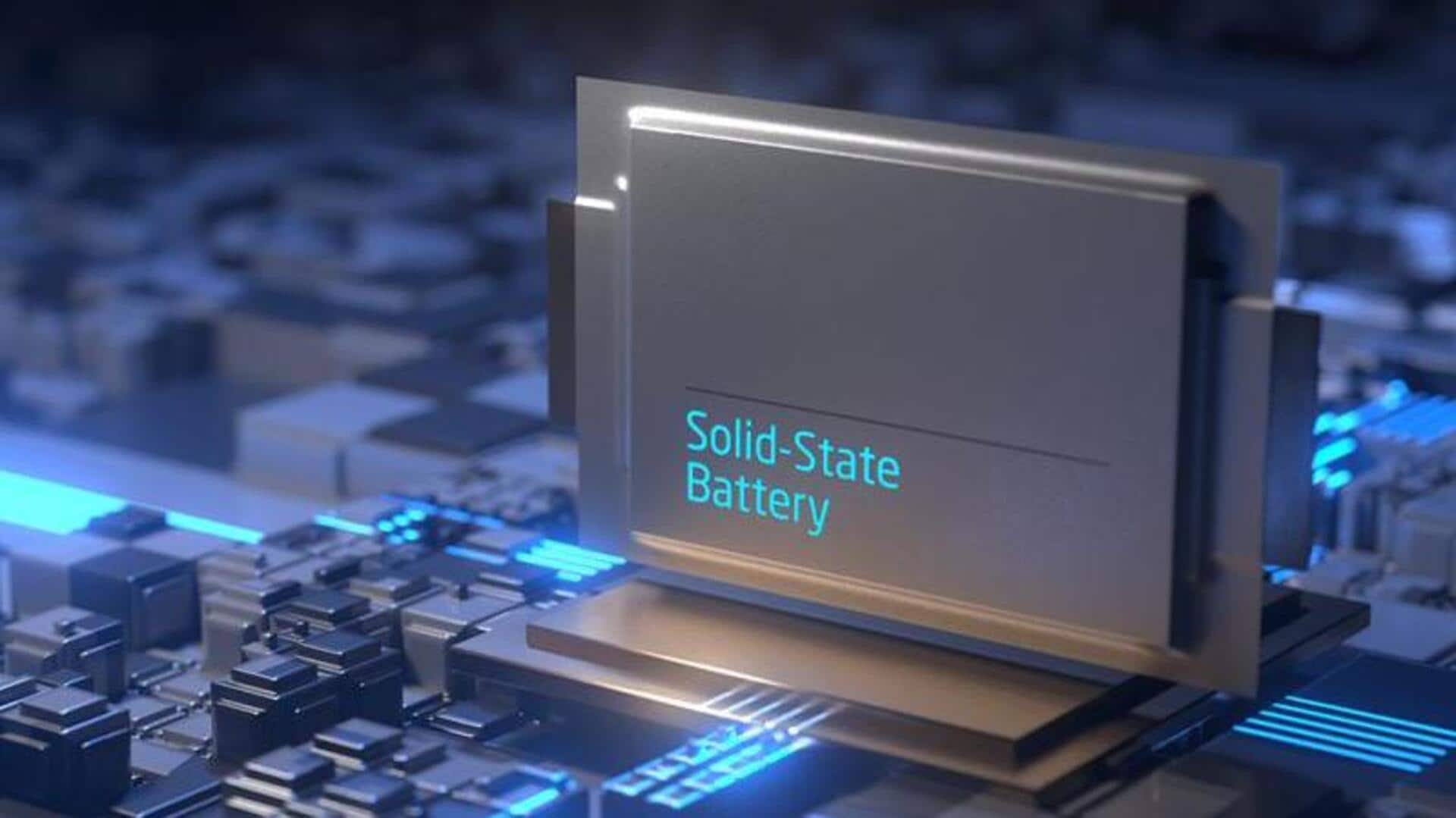
Next-gen battery that lasts 50% longer enters production in US
What's the story
Ion Storage Systems, a US-based start-up, has started the production of its innovative solid-state batteries. The technology was inspired by hydrogen fuel cells and is being manufactured in a factory in Beltsville, Maryland. The new high-energy-density batteries could revolutionize electronics and have been backed by the US Department of Energy.
Technology potential
Promise of solid-state batteries
Solid-state batteries, which replace the liquid core of traditional lithium-ion batteries with a solid one, hold immense potential for improving smartphones and electric vehicles (EVs). Ion's unique approach could lead to power cells that last 50% longer, charge much faster, and have a negligible risk of catching fire when damaged. However, despite their promise, solid-state batteries have yet to become commercially viable.
Testing phase
DoD among 1st to test Ion's cells
Ion has started shipping its finished cells to potential customers for testing. The US Department of Defense was among the first to test these cells, which held up well in initial trials. The company also received a $20 million ARPA-E scale-up grant for demonstrating progress in manufacturing and shipping products, an essential step toward reducing costs.
Manufacturing challenges
Challenges in manufacturing solid-state batteries
Standard solid-state batteries expand and contract during charging and discharging, which can damage the cell.To counter this "breathing" movement, companies use springs and metal plates inside their packs. However, these additions add weight and volume, negating the energy-density advantage of these batteries.The manufacturing process for solid-state batteries is also different from traditional ones, making it more complex.
Breakthrough development
How did Ion get started?
In 2013, Eric Wachsman, a materials scientist at the University of Maryland, and his Ph.D. student Greg Hitz discovered the possibility of using porous, rigid ceramic substrates in lithium-ion batteries. This new approach simplifies the structure of typical lithium-ion batteries and buffers the expansion and contraction of lithium as it moves through the battery. It also allows Ion's cells to be encased in soft foil pouches like conventional lithium-ion batteries.
Strategic vision
Ion's CEO believes technology can be manufactured at lower costs
Ion's current small-scale production is just the beginning. The company hopes to convince early-adopter customers that its near-term higher production costs are worth the increased energy density of its cells. Ion's new CEO, Jorge Schneider, believes this revolutionary technology can be manufactured without the capital intensity of building a Gigafactory. This could allow Ion to partner with major battery makers like LG, Panasonic, and Samsung.